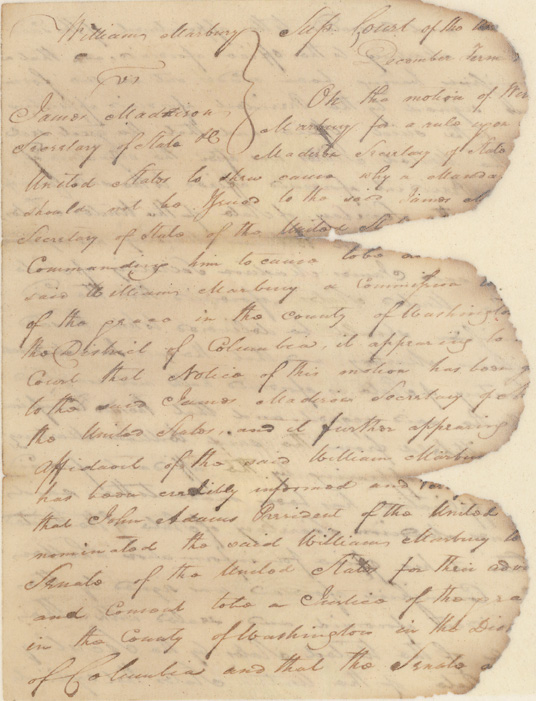Marbury v. Madison marked the first time the United States Supreme Court declared a federal law unconstitutional. This 1803 case is one of the most important decisions in U.S. history. Chief Justice John Marshall wrote the opinion for the court. He held that it was the duty of the judicial branch to determine what the law is. His opinion established the power of judicial review—that is, the court’s authority to declare laws unconstitutional.

In 1801, President John Adams appointed William Marbury justice of the peace in the District of Columbia. But Thomas Jefferson had defeated Adams in the presidential election in November 1800. Jefferson was sworn in before Marbury took office, and James Madison, the new secretary of state, withheld Marbury’s appointment. Marbury asked the Supreme Court, under Section 13 of the Judiciary Act of 1789, to force Madison to grant the appointment. But the court refused to rule on the appointment because Section 13 gave the Supreme Court powers not provided by the Constitution. As a result, the court declared Section 13 unconstitutional.
